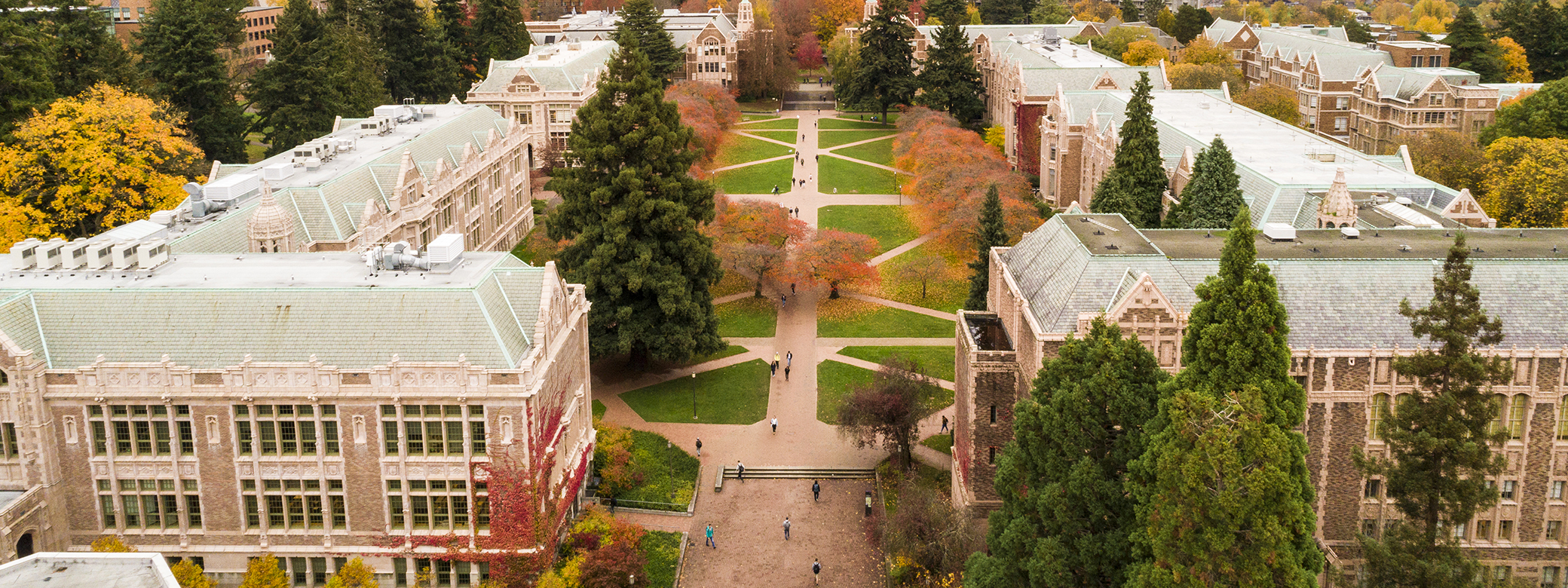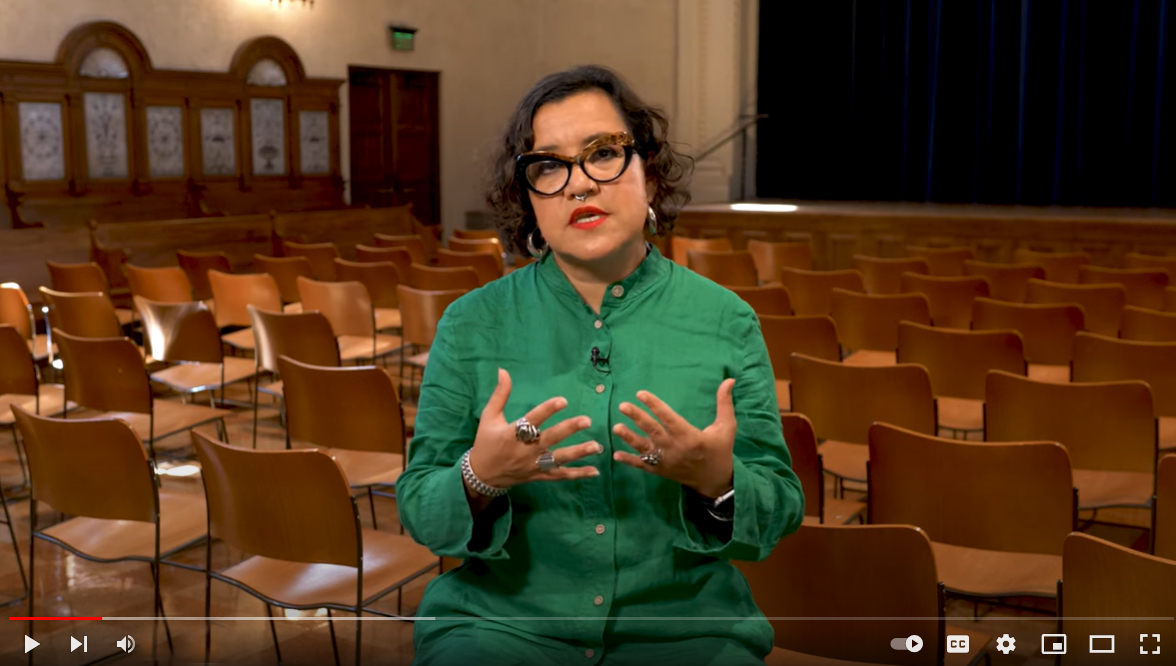The College of Arts & Sciences is pleased to celebrate the many awards and honors that faculty, staff, and alumni have received over the past few months for their research, community building, and other accomplishments. Congratulations to all!
Art Faculty Honored by National Science Foundation
Two faculty in the UW School of Art + Art History + Design (SoA+AH+D) have received major recognition from the National Science Foundation (NSF) — awards typically given to faculty in science and engineering fields.
James Pierce, assistant professor of interaction design, has received NSF’s Faculty Early Career Development Program (CAREER) Award. Considered the foundation’s most prestigious award in support of early-career faculty, the CAREER Award is presented to faculty “who have the potential to serve as academic role models in research and education and to lead advances in the mission of their department or organization."
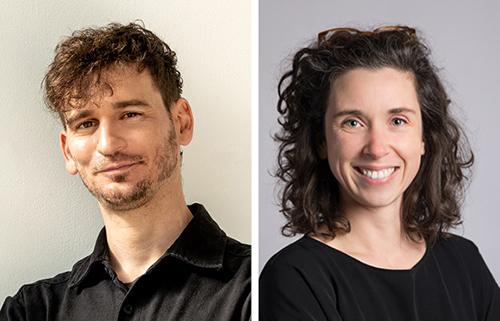
Pierce’s work focuses on smart home devices, privacy, surveillance, and data. The CAREER Award will provide approximately $500,000 over five years, enabling Pierce to continue research into privacy for smart devices — research he began with a previous NSF award in 2020. Multiple undergraduate and graduate students from SoA+AH+D, Computer Science & Engineering, and Human Centered Design & Engineering have participated in the research.
Audrey Desjardins, associate professor of interaction design, is co-principal investigator for a major project through NSF’s Future of Work at the Human-Technology Frontier program, an initiative to foster bold research at the frontiers of science and engineering. The project, with UW Professor Daniela Rosner (Human Centered Design & Engineering) as principal investigator, aims to better understand the risks and opportunities posed by technologies currently used for in-home childcare (such as cameras and other smart home technologies, and platforms that match workers and families) with the goal of designing new technologies that benefit childcare workers and services, parents and children, and society as a whole. The project will receive $1.8 million in NSF support over three years.
"Traditionally, these grants are awarded to faculty in STEM (Science, Technology, Engineering, Mathematics) fields," say Pierce and Desjardins. "It’s especially exciting to us that the NSF recognizes the value that design and art can contribute to important societal issues and cutting-edge research about the future of our lives with technology.”
Genius Award for GWSS Alum
Martha Gonzalez (PhD, 2013) received a Grammy Award during her time as a graduate student in the UW Department of Gender, Women & Sexuality Studies (GWSS) and was named Graduate Medalist in the Social Sciences. Now Gonzalez is an associate professor of Chicana Studies at Scripps College — and a 2022 MacArthur Fellow.
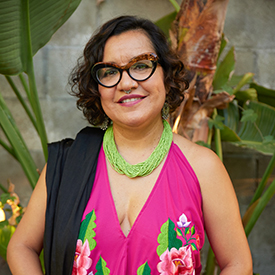
Awarded by the MacArthur Foundation, the fellowship is an $800,000, no-strings-attached grant for individuals who have shown exceptional creativity in their work and the promise to do more. The foundation noted Gonzalez’s accomplishments as “a musician, cultural theorist, and activist developing collaborative methods of artistic expression that build community and advance social justice principles,” and her body of work that “spans musical performance, scholarship, and transnational arts education and organizing.”
The MacArthur Foundation’s profile of Gonzalez explains that a common thread uniting her projects is the cultivation of convivencia within and across communities. Gonzalez defines convivencia as convenings that feature participatory art and music and dialogue around shared social values. She enacts her vision of convivencia in several collaborative music and dance-based projects, including as lead singer, songwriter, and percussionist with her East Los Angeles music collective Quetzal, which features the participatory principles of son jarocho and fandango. At the UW, Gonzalez also shared the practice of convivencia through projects such as the Seattle Fandango Project (SFP) and Women Who Rock: Making Scenes, Building Communities.
“While in our PhD program, Martha honed and directed her gifts as a person, a scholar, and a musician always towards the work — her work of community building and connecting people in the name of transformative justice and scholarship and mutual aid,” says Michelle Habell-Pallán, professor of GWSS and Gonzalez’s graduate adviser. “Even after winning a Grammy while at UW, Martha never gave up her scholarly aspirations, but instead figured out a way to merge her musical, political, and scholarly talents as her work linked local, regional, and international communities.”
"I could not have done any of this without the wonderful education and mentorship I received from all of my professors at UW and specifically in the GWSS department!" Gonzalez says. In a video on the MacArthur Foundation site, she says of her work, “As a Chicana feminist, I am really concerned with the liberation of all people that are oppressed by systems of power. As a musician, I’m bringing my skillsets in order to have communities dissect these systems of power through music and music dialogue.”
In 2020, Gonzalez’s scholarly book about this approach — based on her GWSS doctoral dissertation — was published, titled Chican@ Artivistas: Music, Community, and Transborder Tactics in East Los Angeles.
2022 MacArthur Fellow Martha Gonzales is a musician, scholar, and artist/activist who strengthens cross-border ties and advances participatory art for social justice. In this video, learn more about her work in her own words.
Xiao Awarded Packard Fellowship
Dianne Xiao, assistant professor in the UW Department of Chemistry and Klaus and Mary Ann Saegebarth Endowed Faculty Fellow, has been awarded a 2022 Packard Fellowship for Science and Engineering for her research on creating new catalysts that can take advantage of renewable energy sources and sustainable raw materials. The Packard Fellowship is awarded to early-career scientists and engineers who are pursuing new areas of research. Each fellow will receive $875,000 in unrestricted funds for use over the next five years.
One of Xiao’s research projects focuses on developing new porous conductors that could help the chemical industry power chemical processes with renewable electricity. Her lab also is developing catalytic materials that can convert sustainable starting materials, such as biomass, into desired chemicals. The goal of both projects is to help shift the chemical industry away from petroleum as its primary energy source and raw material. The Packard Fellowship, one of the largest nongovernmental research awards, will further Xiao’s work toward a more sustainable future for the chemical industry.
“Whenever you’re starting a research group, there are areas you don’t have total familiarity with,” Xiao said. “It can be hard to get funding, or it can feel hard to break into that area. Having this funding means being able to take intellectual risks, make mistakes and hire people with different expertise. That will allow us to grow and push our research.”
In a recent video message on The David and Lucile Packard Foundation’s LinkedIn page, Xiao talked about the Packard Award and the importance of mentors in her growth as a scientist. “I’m super excited and humbled to be named a 2022 Packard Fellow,” she said. “When I was a young scientist, I had a lot of really amazing mentors that lifted me up and really believed in me, probably even more than I believed in myself at the time. So if I could send out a message to young scientists, particularly young scientists that maybe don’t have full confidence in themselves just yet, my message would be that I believe in you. You can do it. You’re capable of so much more than you think.”
Xiao is the fourth Packard Fellow currently on the Department of Chemistry faculty, joining Ashleigh Theberge, Brandi Cossairt, and Munira Khalil in receiving this recognition.
President Cauce Elected to National Academy of Medicine
University of Washington President Ana Mari Cauce is among the new members elected to the National Academy of Medicine. She is recognized for “exemplary and visionary leadership in public higher education administration; innovations in health research, education, and service systems that enhance pathways for women and underrepresented groups; initiatives to address interconnections between health equity, population health, and climate change; and pioneering behavioral health intervention research on Latinos.”
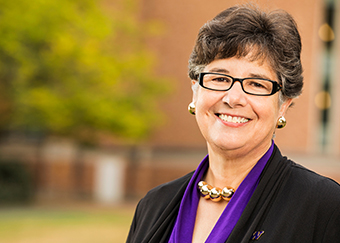
A professor of psychology and American ethnic studies, with secondary appointments in the Department of Gender, Women and Sexuality Studies and the College of Education, Cauce’s research focuses on adolescent development, with a special emphasis on at-risk youth. As UW President, Cauce launched the UW’s Population Health Initiative with an emphasis on interdisciplinary research and collaboration as the key to addressing some of our most vexing health challenges.
“Ana Mari is richly deserving of this honor, and the Academy’s recognition reflects her visionary leadership in launching the Population Health Initiative,” says UW Provost and Executive Vice President for Academic Affairs Mark Richards. “She is a thoughtful, compassionate and brilliant champion for creating impact for healthier people and communities everywhere.”
To date, the Population Health Initiative has engaged about 12,000 students, funded more than 200 student awards, engaged about 1,300 faculty members, funded more than 130 faculty projects and supported more than $42 million in grant-supported applications.
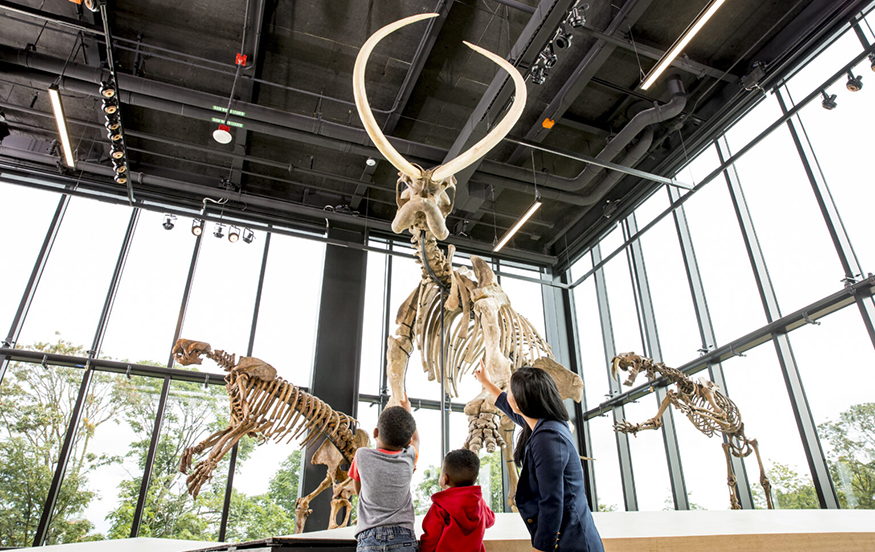
Burke Receives National Award
Earlier this year, the Burke Museum is one of six recipients of the 2022 National Medal for Museum and Library Service, the nation’s highest honor given to museums and libraries that make significant and exceptional contributions to their communities. The Burke Museum is the only institution in Washington to be selected for the award, given by the Institute of Museum and Library Services.
National Medal for Museum and Library Service winners represent institutions that provide dynamic programming and services that exceed expected levels of service. Through their community outreach, these institutions bring about change that touches the lives of individuals and helps communities thrive.
“At a moment when the purpose and guiding values of museums are being widely reconsidered, the Burke Museum is honored to be recognized for its commitment to serving our communities,” says Gabriela Chavarria, executive director of the Burke Museum. “We see this commitment come to life in the new building, which is designed to bring visitors into close, meaningful engagement with the Burke’s research and collections.”
The museum’s commitment to community is also reflected in every aspect of the work, says Burke emeritus executive director Julie Stein. “We value and prioritize consulting and co-creating beyond the museum," says Stein, "so we can better reflect the diverse histories, perspectives, traditions and contributions of our region."
Statistics Innovators Honored with Rousseeuw Prize
Unlike many prizes, the Rousseeuw Prize for Statistics — introduced this year — focuses on a specific innovation with relevance to society rather than a single individual. Researchers from several institutions can be honored as contributors to that innovation. This year, Thomas Richardson, professor of in the UW Department of Statistics, was among five recipients of the prize, along with Andrea Rotnitzky (Harvard/Universidad Torcuato Di Tella Universidad Torcuato Di Tella), James Robins (Harvard), Miguel Hernán (Harvard), and Eric Tchetgen Tchetgen (UPenn). Rotnitzky will be joining the UW Biostatistics faculty in January 2023.
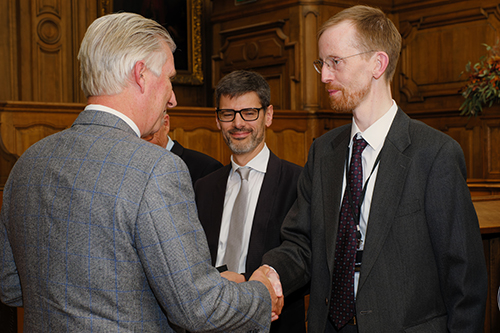
The researchers were recognized for pioneering work on causal inference, with applications in medicine and public health. Causal inference is the process of determining causes and effects. This can be harder than it looks, because several factors can occur together. The laureates’ work has provided new insights and statistical methods for addressing central epidemiological questions, such as the effect of a long-term medical treatment and optimal treatment strategies, which have influenced statistical practice in medicine and public health.
“The work honored by the Rousseeuw Prize has completely transformed the way in which statisticians, epidemiologists, and others infer the effects of interventions, treatments, and exposures to potentially harmful substances,” states the selection committee. “It has greatly improved the overall reliability of causal analysis in medicine and public health, with great benefit to society.”
Awarded by the King Baudouin Foundation, half the $1,000,000 prize will go to Robins and half will be shared by Richardson, Rotnitzky, Hernán, and Tchetgen Tchetgen, all of whom were trained or deeply influenced by Robins and remain his principal collaborators to this day.
“I am humbled, delighted, and amazed to accept this honor with Andrea, Eric, Jamie, and Miguel,” says Richardson. “I am very proud to be a part of such an insightful, talented, and impactful group.”
Other Awards, Honors & Professorships
Honorary Awards
Publication Awards
Professorships (New Appointments)
Other Recognition
Honorary Awards
Zack Almquist, associate professor of sociology, received the American Sociological Associations Methodology Section's Leo Goodman Award, for contributions to sociological methodology and innovative uses of methodology by a scholar who received his/her PhD within the previous 15 years. Almquist also received a Faculty Early Career Development (CAREER) award from the National Science Foundation (NSF) for his project, "Measuring and Modeling the Multi-Modal Networks and Demographics of People Experiencing Homelessness." NSF’s CAREER award program supports early-career faculty who have the potential to serve as academic role models in research and education and to lead advances in their field.
Theresa Rocha Beardall, assistant professor of sociology, won the 2022 Distinguished Early Career Award from the American Sociological Association’s Section on Racial and Ethnic Minorities.
Ivana Bozic, assistant professor of applied mathematics, is the 2023 recipient of the Akira Okubo Prize, awarded jointly by the Society for Mathematical Biology and the Japanese Society for Mathematical Biology, for her significant contributions in mathematical modeling of cancer evolution and her groundbreaking approach in synthesis of theory and data and its impact in the fields of mathematical biology and cancer research.
Alexes Harris, UW Presidential Term Professor of Sociology, received the Peterson-Krivo Mentoring Award from the Crime Law and Deviance section of the American Sociological Association, an award bestowed every two years to recognize sustained work and/or innovative approaches in facilitating the success of students and scholars.
Sunila S. Kale, associate professor of international studies, received a Fulbright-Hays Faculty Research Abroad Fellowship for her project, “The Political Economy of Artisanal Labor in India’s Informal Sector.” Hosted by the U.S. Department of Education and supported by the U.S. State Department, the Fulbright-Hays faculty fellowship program is designed to contribute to the development and improvement of modern foreign language and area studies in the U.S. by providing opportunities for scholars to conduct research abroad.
J. Nathan Kutz, Robert Bolles and Yasuko Endo Professor in the Department of Applied Mathematics and adjunct professor of electrical engineering and physics, has been elected as a Society for Industrial and Applied Mathematics (SIAM) Fellow, in recognition of his contributions to applied dynamical systems, machine learning, and nonlinear optics.
Xiaosong Li, Larry R. Dalton Endowed Chair in Chemistry, Associate Vice Provost for Research Cyberinfrastructure, and faculty member in the Clean Energy Institute and Molecular & Engineering Sciences Institute, was elected to the Washington State Academy of Sciences “for a body of work that supercharges computational chemistry, including pioneering work in time-dependent electronic structure theory and quantum mechanical techniques,” and “for exemplary collaborative efforts, as well as leadership in developing educational pathways for underrepresented minority students in STEM.”
Patricia Louie, assistant professor of sociology, won the Best Publication Award from the American Sociology Association's Section on the Sociology of Mental Health. This award is given for the best published article, book, or chapter in the area of the sociology of mental health.
Valerie Manusov, professor of communication, received the National Communication Association's Mark L Knapp Award in Interpersonal Communication, which “honors career contributions to the study of interpersonal communication and recognizes individuals who have made significant scholarly contributions to the study of interaction and/or relational processes.”
Jim Pfaendtner, Steven and Connie Rogel Endowed Professor of Chemical Engineering, professor of chemistry, chair of the Department of Chemical Engineering, and faculty in several institutes, was elected to the Washington State Academy of Sciences “for pioneering contributions that advanced the frontiers of molecular simulation, impacting the prediction of enzyme activity in ionic liquids, peptide interactions with surfaces and molecular design.”
Aseem Prakash, professor of political science and Walker Family Professor for the Arts and Sciences, has received the 2023 Distinguished Scholar Award from the International Studies Association’s Environmental Studies Section. The award recognizes “outstanding scholars whose long history of excellent research and teaching has had a substantial impact on fields associated with international relations and environmental issues.”
Alejandro Rico-Guevara, assistant professor of biology and curator of ornithology at the Burke Museum, was recently awarded The Society for Integrative and Comparative Biology's Carl Gans Award, which recognizes an outstanding young investigator for distinguished contributions to the field of comparative biomechanics.
Caroline Strömberg, Estella B. Leopold Professor in Biology and Curator of Paleobotany, was named a Fellow of the Geological Society of America (GSA) for 2022, an honor bestowed in recognition of a sustained record of distinguished contributions to the geosciences and the GSA through such avenues as publications, applied research, teaching, administration of geological programs, contributing to the public awareness of geology, leadership of professional organizations, and taking on editorial, bibliographic, and library responsibilities.
Adrian Raftery, the Boeing International Professor of Statistics and Sociology, is recipient of the Chaire d'Excellence from the Fondation des Sciences Mathématiques de Paris (FSMP) as a visiting professor at the Laboratoire MAP5 at Université Paris-Cité. He also received the 2022 Mindel C. Sheps Award for mathematical demography from the Population Association of America. Jointly sponsored by PAA and the University of North Carolina School of Public Health, this award is given biennially for outstanding contributions to mathematical demography or demographic methodology.
František Tureček, Klaus and Mary Ann Saegebarth Endowed Professor of Chemistry, was elected to the Washington State Academy of Sciences “for pioneering fundamental and applied studies in mass spectrometry, physical chemistry, and newborn screening” as well as “propagation of science, science education, and technical expertise contributions to startup companies in Washington state.”
Joshua C. Vaughan, associate professor of chemistry and adjunct professor in the Department of Physiology and Biophysics, is principal investigator on a W. M. Keck Foundation Award to study technologies that can be used to analyze structures of living cells. The $1.3 million grant will support collaborations with biologists and pathologists to apply novel imaging tools to study immune cell development, pathology, and mouse neuronal circuitry.
Sam Wasser, professor of biology and co-executive director of the Center for Environmental Forensic Science, was awarded the 2022 Lowell Thomas Award from the Explorer’s Club. The annual award is given thematically to a group of outstanding explorers to recognize excellence in domains or fields of exploration.
Daniela Witten, professor of statistics and biostatistics and Dorothy Gilford Endowed Chair in Mathematical Statistics, received the COPSS Presidents' Award from the Committee of Presidents of Statistical Societies for outstanding contributions to the field of statistics by a statistician under age 41. More specifically, Witten is recognized for “bridging the gap between the questions that scientists are asking about their data and the statistical methods that are available to provide insightful answers, especially in the context of biomedical research; for developing flexible and interpretable approaches for modeling large-scale and high-dimensional data; and for the significant elevation of statistical science via successful translation of statistical ideas to a broad audience.”
Xiaodong Xu, professor of physics and professor of materials science and engineering, received the Asian American Science and Engineering Innovation Award from the Chinese Institute of Engineers (CIE), Seattle chapter, for his contributions to the exploration and discovery of novel properties of quantum materials. The award is presented annually by the Seattle chapter for outstanding contributions to science and engineering by Asian Americans.
Publication Awards
Maryam Aziz, assistant professor of American ethnic studies, received the V.P. Franklin Legacy Journal of African American History Award, for an article in the Journal of African American History. The award is named for Dr. V. P. Franklin, under whose editorship the journal was recognized as the premier academic journal in African American, African, and Diaspora Studies.
Margaret T. Brower, assistant professor of political science, received the Best Paper on Intersectionality Award from the American Political Science Association, co-sponsored with the Race, Ethnicity, and Politics Section. The award recognizes the roots of intersectional analysis in a critical analysis of the lived experiences of women of color, while also allowing for a more expansive reading of identity politics that takes into account multiple subjectivities and experiences, both within and outside the United States.
Theresa Rocha Beardall, assistant professor of sociology, received the Law and Society Association John Hope Franklin Article Prize for “Abolition, Settler Colonialism, and the Persistent Threat of Indian Child Welfare.”
Peter Catron, assistant professor of sociology, received the Louis Wirth Best Article Award from the American Sociological Association’s Section on International Migration.
Stephanie L. Kerschbaum, associate professor of English, was awarded the 2021 National Council of Teachers of English Richard C. Ohmann Outstanding Article award, given to the best article published in “College English.” Kerschbaum also contributed a chapter to an edited collection, “Centering Diverse Bodyminds in Critical Quantitative Inquiry,” that received a 2022 Critics’ Choice Award from the American Educational Studies Association.
Maya Sonenberg, professor of English, received the Richard Sullivan Prize for her third collection of stories, Bad Mothers, Bad Daughters. The prize is awarded by the University of Notre Dame to authors who have published at least one volume of short fiction or one volume of poetry.
Professorships (New Appointments)
Arbella Bet-Shlimon, associate professor of history, was appointed to the Williams Family Endowed Professorship in History.
Joël-François Durand, professor and interim director of the School of Music, was appointed to the Aura Bonell Morrison Endowed Professorship in Music.
Christoph Giebel, associate professor of international studies and history, was appointed to the Howard And Frances Keller Endowed Professorship in History.
Huck Hodge, professor and chair of composition in the School of Music, was appointed to the Donald E. Petersen Endowed Professorship.
Raymond Jonas, professor of history, was appointed to the Joff Hanauer Endowed Faculty Fellowship in History.
Scott Magelssen, professor of theatre history and head of History, Theory, and Criticism in the School of Drama, was appointed to the Donald E. Petersen Endowed Professorship.
Matthew Mosca, associate professor of international studies and history, was appointed to the Dau-lin Hsu Endowed Professorship.
Jennifer Nemhauser, professor of biology, was appointed to the Endowed Professorship for Excellence in Biology.
Margaret O’Mara, professor of history, was appointed to the Scott and Dorothy Bullitt Chair of American History.
Juan Pampin, professor and chair of DXARTS, was appointed to the Donald E. Petersen Endowed Professorship.
LaShawnDa Pittman, associate professor of American Ethnic Studies, was appointed to the Joff Hanauer Honors Professorship in Western Civilization.
Alicia Beckford Wassink, professor of linguistics, was appointed to the Byron W. And Alice L. Lockwood Professorship in The Humanities.
Dianne Xiao, assistant professor of chemistry, was appointed to the Klaus and Mary Ann Saegebarth Endowed Faculty Fellowship.
Other Recognition
Purnima Dhavan, associate professor of history, received a National Endowment for the Humanities grant in support of a collaborative research project, Urdu’s Origins Revisited, about the origins and development of Urdu, an important language spoken primarily in India, Pakistan, Nepal, and Bangladesh.
Lewis Johnson (UW PhD, 2012), research scientist II in the Department of Chemistry and chief scientific officer of NLM Photonics, was named to Puget Sound Business Journal’s 40 Under 40, which highlights people who’ve made significant strides in their careers and showcased a strong sense of civic duty while actively contributing to their communities in the Puget Sound region.
Devin Naar, Isaac Alhadeff Professor in Sephardic Studies, associate professor of history, and faculty at the Stroum Center for Jewish Studies in the Jackson School of International Studies, was selected as a Yiddish Book Center 2022 Translation Fellow. Fellows are emerging translators who are versed in Yiddish language and culture. Naar will be translating America’s first Ladino novel.
Adrian Raftery, the Boeing International Professor of Statistics and Sociology, has been busy presenting distinguished lectures nationally and internationally, including James R. Thompson Distinguished Lecture at Rice University, the Keyfitz Lecture in Mathematics and the Social Sciences at the University of Toronto, the plenary ISBA Foundational Lecture at the World Meeting of the International Society for Bayesian Analysis (ISBA), and the Campion Lecture at the Royal Statistical Society's 2022 International Conference.
Pepper Schwartz, professor of sociology, was honored by the naming of the Pepper Schwartz Professorship of Sexuality and Aging in the University of Minnesota School of Medicine.
Juliet Sperling, assistant professor of art history in the School of Art + Art History + Design, received a Barbara Thom Postdoctoral Fellowship at The Huntington in San Marino, California. The Thom fellowships support non-tenured faculty who are revising their dissertation for publication as their first monograph. Sperling will be completing her first book, “Tactile Encounter and the Moving Image in American Art.”
Alexandra Velian, assistant professor of chemistry, was among C&EN’s Talented Twelve, a list of early-career “superstar scientists” using chemistry to make the world a better place, as featured in the American Chemical Society’s “Chemical & Engineering News.”
More Stories
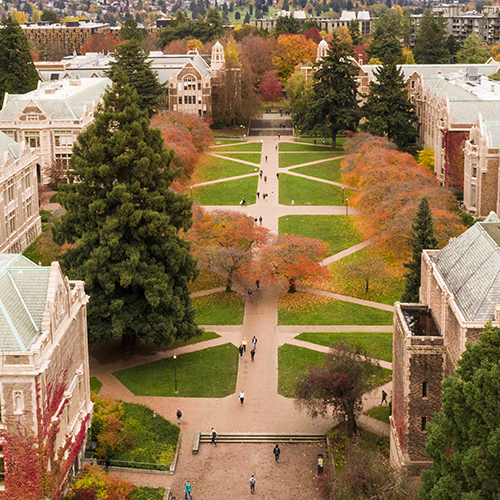
Awards for Research, Social Justice Efforts & More
Recent awards celebrate Arts & Sciences faculty, staff, and alumni for their research, social justice work, lifetime achievements, and more.
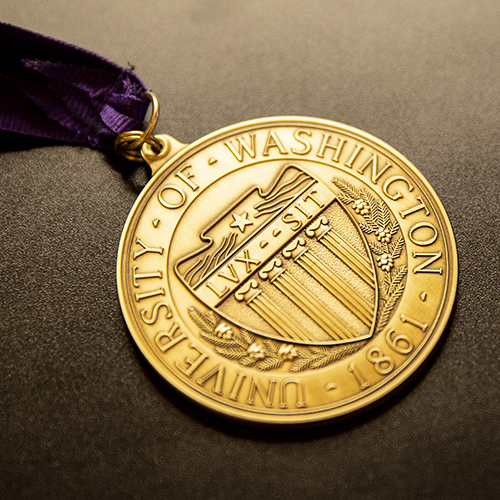
2025 UW Awards of Excellence
Arts & Science faculty and staff were among the recipients of 2025 UW Awards of Excellence for their teaching, leadership, and innovation.
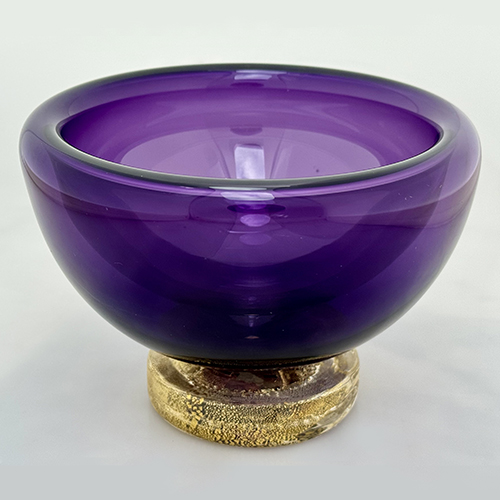
A Handcrafted Award for Medalists
Each of the College's 2025 medalists received a special gift — a glass bowl, handblown in the UW School of Art + Art History + Design.
